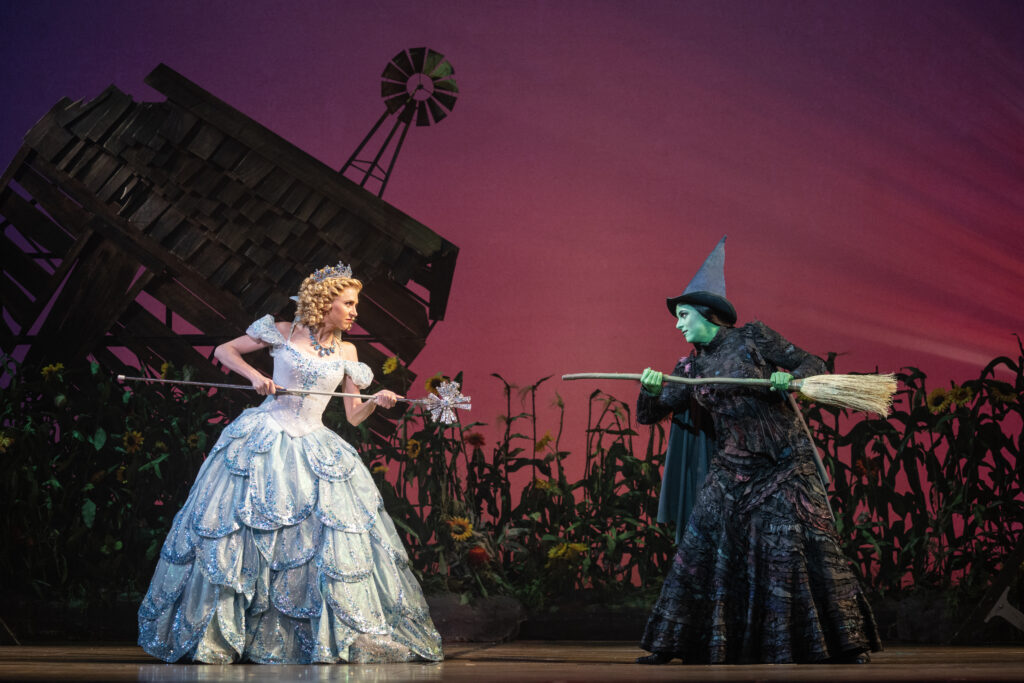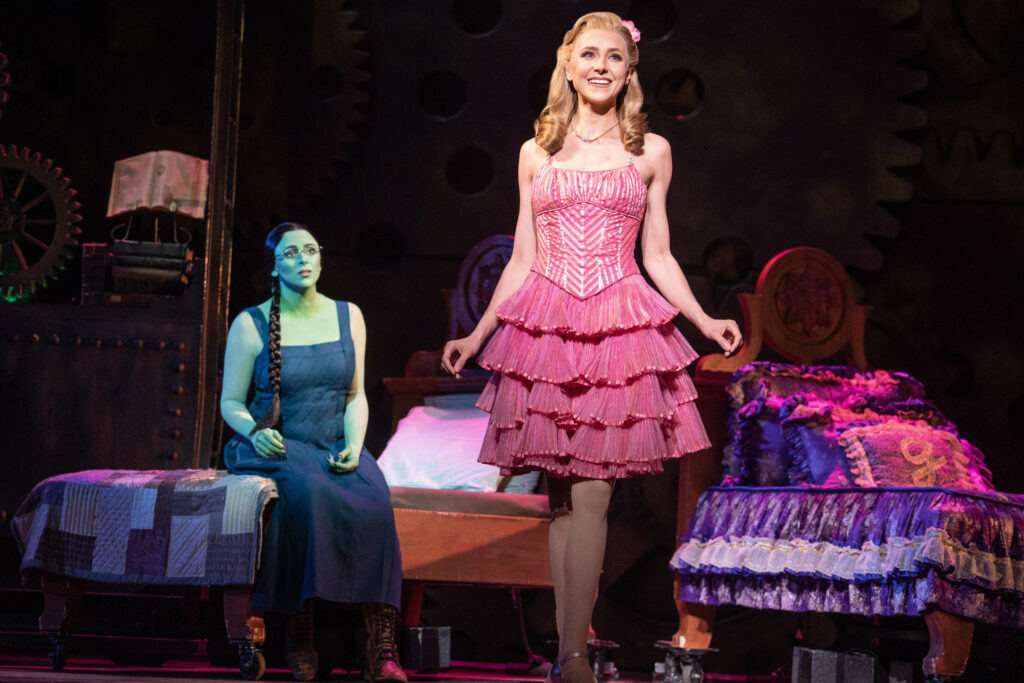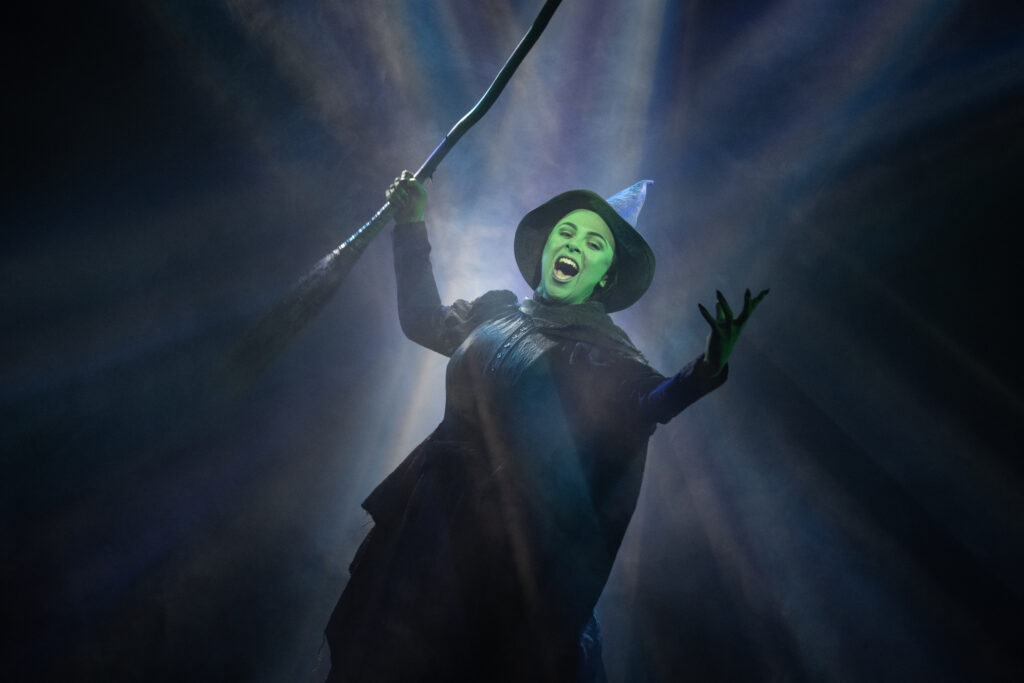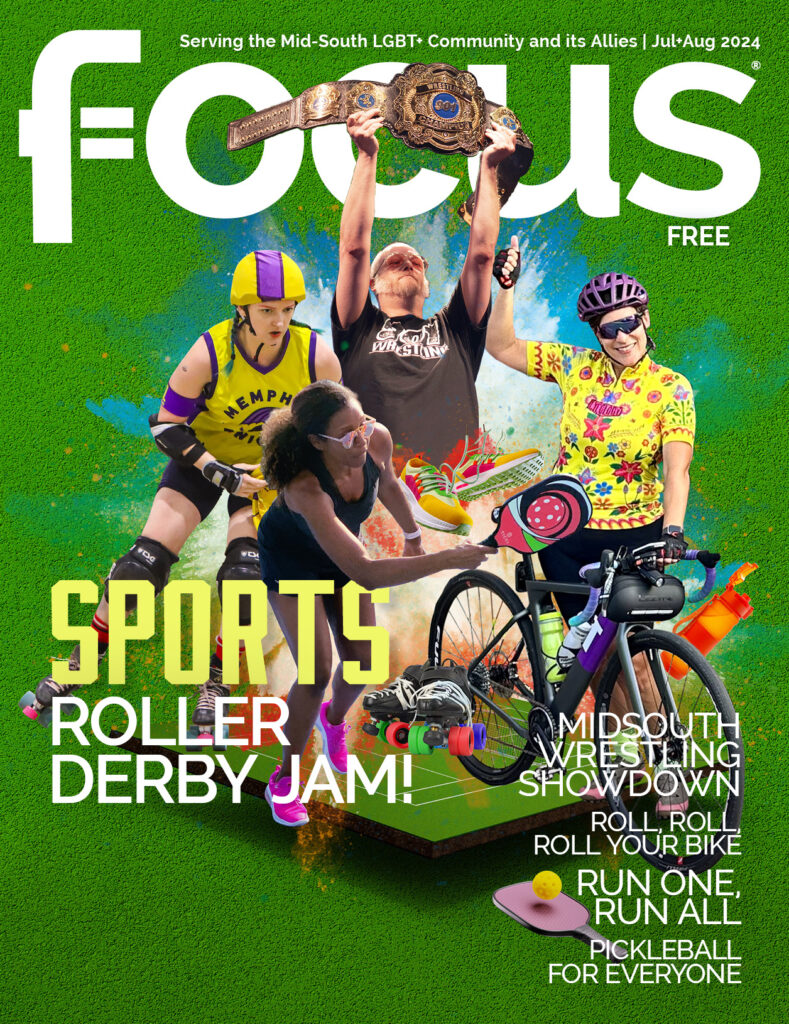Wicked, now back in Memphis, remains a Broadway fave among LGBTQ communities
Wicked the Musical is back in Memphis! The beloved Broadway hit returned to the Orpheum this April for the fifth time, reminding us just how magically fun it really is—and why so many queer people love it!
Wicked is loosely based on the 1939 film The Wizard of Oz, which comes from the 1900 classic book by L. Frank Baum. But this Broadway play, adapted from a Gregory Maguire novel by Winnie Holzman, is absolutely its own revisionist story in that it takes a totally different turn and perspective.
With captivating music and lyrics by Stephen Schwartz, Wicked the Musical is the fantastically queer-coded Broadway play so many of us can relate to.

Without dishing out any spoilers, Wicked largely follows well-loved Galinda and green-skinned, outcast Elphaba as they go from rivals, to allies, to what some could even call friends.
The plot cleverly bends around what many of us know to be the story of The Wizard of Oz without ever once seeing the main character Dorothy on stage. The play reveals in two acts (along with several other surprises) just how these friends become Glinda the Good Witch and the Wicked Witch of the West, respectively.
Wicked has no openly queer characters, but that doesn’t stop the show or its fans from exploring several queer-coded elements and metaphors for queerness. For example, LGBTQ fans will be the first to mention the obvious sapphic tension between Elphaba and Glinda throughout the show.

And then there is Elphaba’s lack of acceptance by both her family and society-at-large. Many LGBTQ fans express the many parallels of how Elphaba is treated to how many queer people are treated in certain parts of society for simply being who they are. Not to mention, the simple fact that Wicked being a revisionist story of a popular film is queer in itself.
Its queer-codedness is exactly why Elphaba’s story arc is so powerful—she continuously overcomes obstacles and “defies gravity” despite all of society’s assumptions about her.
Wicked is about challenging the status quo. It’s about choosing not to make assumptions about someone based on the way they look, or the stereotypes around what “people like them” are supposed to be like.

First premiering in 2003 in San Francisco, Wicked has thrilled thousands of fans ever since, now spanning across generations inspired by its themes of belonging, family, and love. And let’s not forget about the music.
Many of us may be familiar with Wicked songs like “Defying Gravity” and “Popular,” later covered by queer artist Mika, featuring Ariana Grande in 2012.
Now the iconic show has its odd moments— its representation of Nessarose, Elphaba’s sister who used a wheelchair, leaves much to be desired in terms of outdated, ableist views on people living with disabilities.
But its disability representation stands out like a sore thumb amid many of the strong and biting critiques about society, propaganda, and racism—because so much of Wicked’s themes are powerfully timeless.
It’s no wonder Wicked has toured for so long—it’s an impactful and moving Broadway show that speaks to so many communities who are so often ignored, and it does this in the most entertaining and fun way—we couldn’t ask for much more!
Wicked the Musical | Orpheum Theatre | April 3 – April 21, various times | Ages 5 and up |Tickets starting at $43 | Get your tickets, now!



